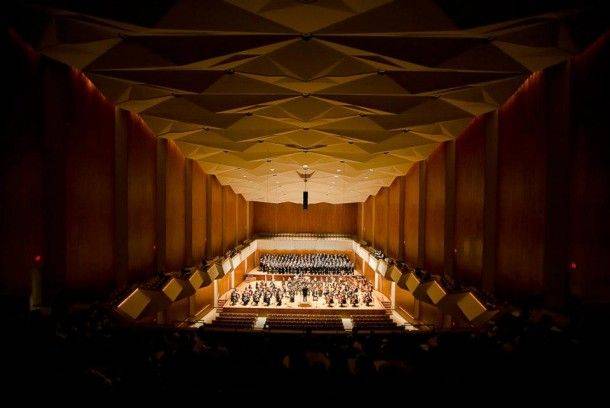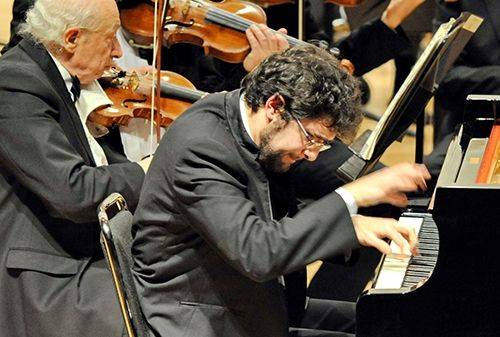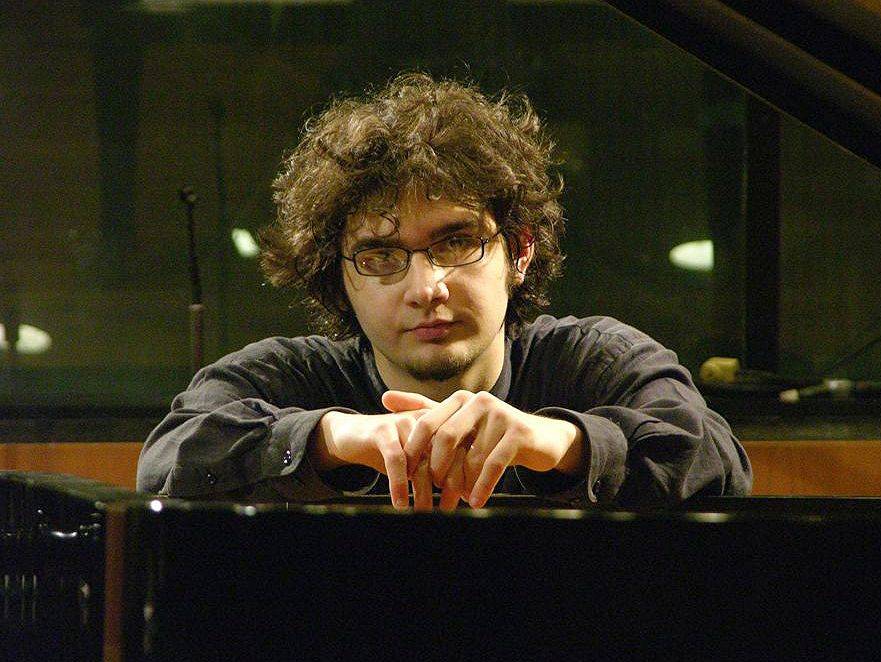I’ve talked to some incredible people, especially in the past few weeks. For starters, I got to talk to a world renowned cellist by the name of Maya Beiser. Then I interviewed a filmmaker, Chris Sotelo, who just premiered a music video for Elsinore, an amazing local band. No matter where I dig, I seem to strike conversational oil.
My latest treasure came in the form of an email interview with busy and talented Israeli pianist Roman Rabinovich. He’ll be performing Tchaikovsky’s Piano Concerto No. 1 with the Haifa Symphony Orchestra at The Krannert Center for the Performing Arts on Saturday.
Smile Politely: When did you first start noticing music and being drawn to it?
Roman Rabinovich: I grew up in a musical home; both of my parents are piano teachers and music was around all the time in the house. My parents would put [on] records for me and I absolutely loved it. Then, at around age five, I started learning the piano with my mother and, at age ten, already started playing concerts. Around that age, I made my Israel Philharmonic debut with Maestro Zubin Mehta and realized that this is what I want to do in life.
SP: Impressive! Why piano? What grabs you about that particular instrument?
Rabinovich: Piano is such a self-sufficient instrument, the closest to an orchestra. The range is so wide — from contra bassoon to piccolo. One can play both the melody and the accompaniment at the same time, imitate sounds of different instruments and even the human voice. Also, the physicality of the piano grabbed me and I was immediately drawn to it.
SP: Where are some of your favorite places to play?
Rabinovich: Every place is interesting to me. I travel a lot and the encounters with new people, different halls, and instruments are fascinating. If I had to choose personal favorites, it would be Israel (because it is where I grew up) and Wigmore Hall in London because it has the most gorgeous acoustics and a very intimate atmosphere.

SP: Atmosphere is too often overlooked when it comes to live music. What are some of your personal and/or musical influences? Do you even separate those?
Rabinovich: It is hard to separate personal from musical influences, because music is part of life. When you delve into a composer’s music, you feel as if you are part of his world and getting to know him as a person. I’m influenced by what I play, by musicians that I work with, and, of course, by friends, movies, books, and so on.

SP: What is your performance routine?
Rabinovich: If it is an evening concert, I get up around 9 a.m., go to the hall for a few hours to get to know the piano I’m about to play. Every piano and every hall is different, and it is important to try it and adjust the playing accordingly. For example, in a boomy hall, the tempo will be a little bit slower than in a dry acoustic because the sound needs time to travel.
I try not to eat heavy food before concerts — a salad or a soup. If there is time I would take a short nap in the afternoon. Before I go on stage, I meditate backstage and imagine the music in my head so by the time I’m on stage, I’m already in the music.
SP: Success through visualization. A tried and true practice…
If you could see any concert, what would it be?
Rabinovich: I would have given anything to hear Beethoven improvise!
SP: I think I would, too!
If you love Tchaikovsky’s work like I do, be sure to see Mr. Rabinovich with the Haifa Symphony Orchestra this Saturday at Krannert. Rabinovich started with the symphony’s first U.S. tour in Sarasota’s Van Wezel Performing Arts Hall on January 22. Their 26 city trek includes the group’s first U of I performance.
Rabinovich has a clean, solid technique; his dynamic range is quite broad, and he can perform a small but effective dynamic change at any level. Especially impressive was his crescendo from near silence to quite loud. His interpretation was faultless — technique, dynamics and interpretation. The orchestra matched the soloist in intensity and spirit.
— Joseph Youngblood, Palm Beach Daily News, 1/31/14








